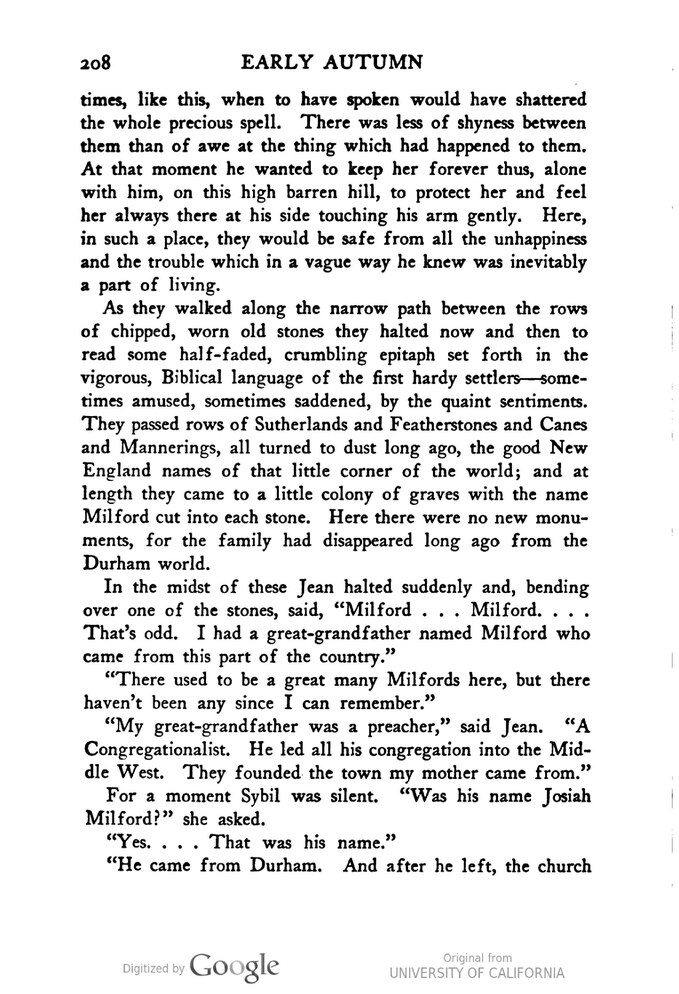times, like this, when to have spoken would have shattered the whole precious spell. There was less of shyness between them than of awe at the thing which had happened to them. At that moment he wanted to keep her forever thus, alone with him, on this high barren hill, to protect her and feel her always there at his side touching his arm gently. Here, in such a place, they would be safe from all the unhappiness and the trouble which in a vague way he knew was inevitably a part of living.
As they walked along the narrow path between the rows of chipped, worn old stones they halted now and then to read some half-faded, crumbling epitaph set forth in the vigorous, Biblical language of the first hardy settlers—sometimes amused, sometimes saddened, by the quaint sentiments. They passed rows of Sutherlands and Featherstones and Canes and Mannerings, all turned to dust long ago, the good New England names of that little corner of the world; and at length they came to a little colony of graves with the name Milford cut into each stone. Here there were no new monuments, for the family had disappeared long ago from the Durham world.
In the midst of these Jean halted suddenly and, bending over one of the stones, said, "Milford . . . Milford. . . . That's odd. I had a great-grandfather named Milford who came from this part of the country."
"There used to be a great many Milfords here, but there haven't been any since I can remember."
"My great-grandfather was a preacher," said Jean. "A Congregationalist. He led all his congregation into the Middle West. They founded the town my mother came from."
For a moment Sybil was silent. "Was his name Josiah Milford?" she asked.
"Yes. . . . That was his name."
"He came from Durham. And after he left, the church
